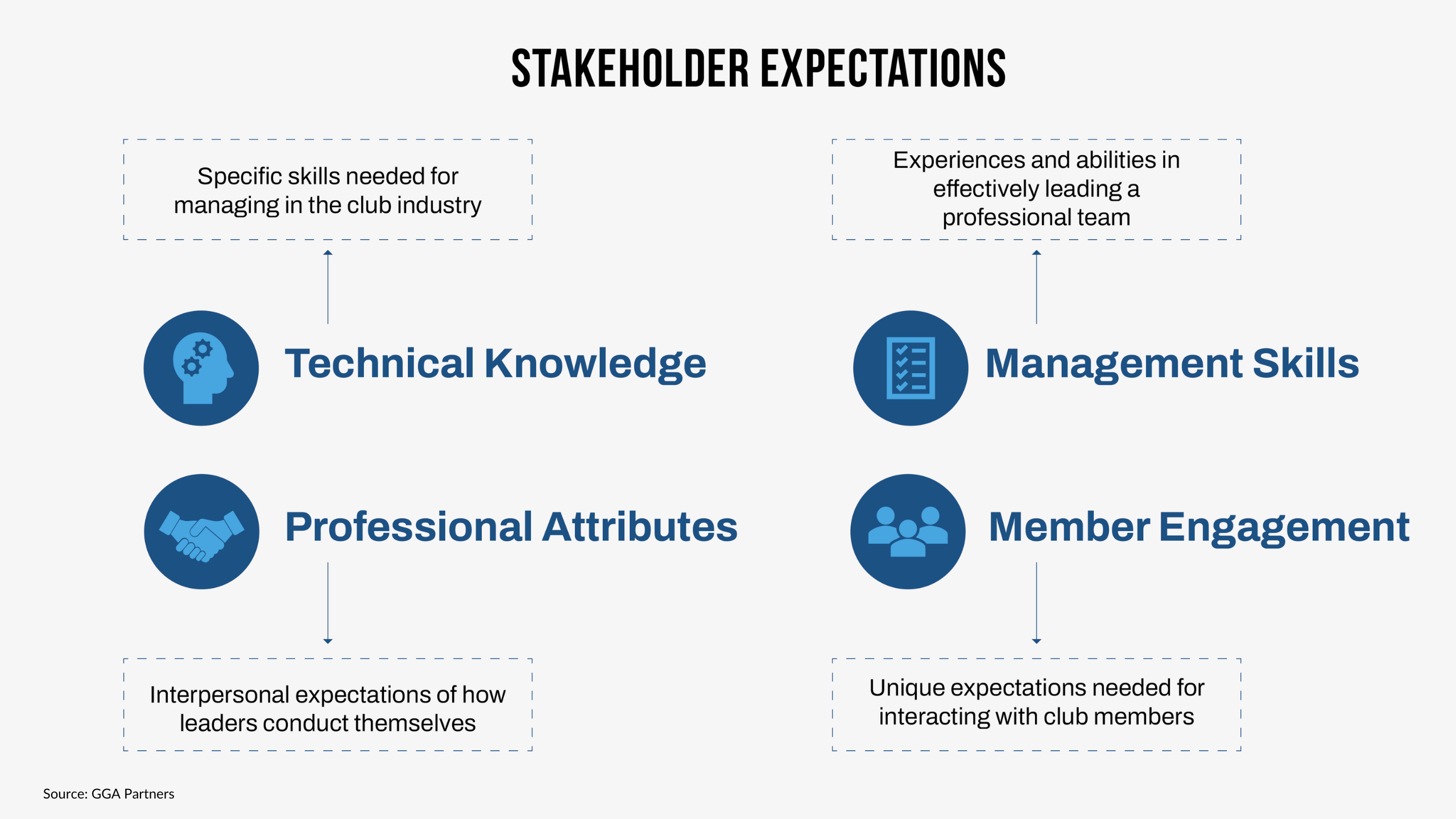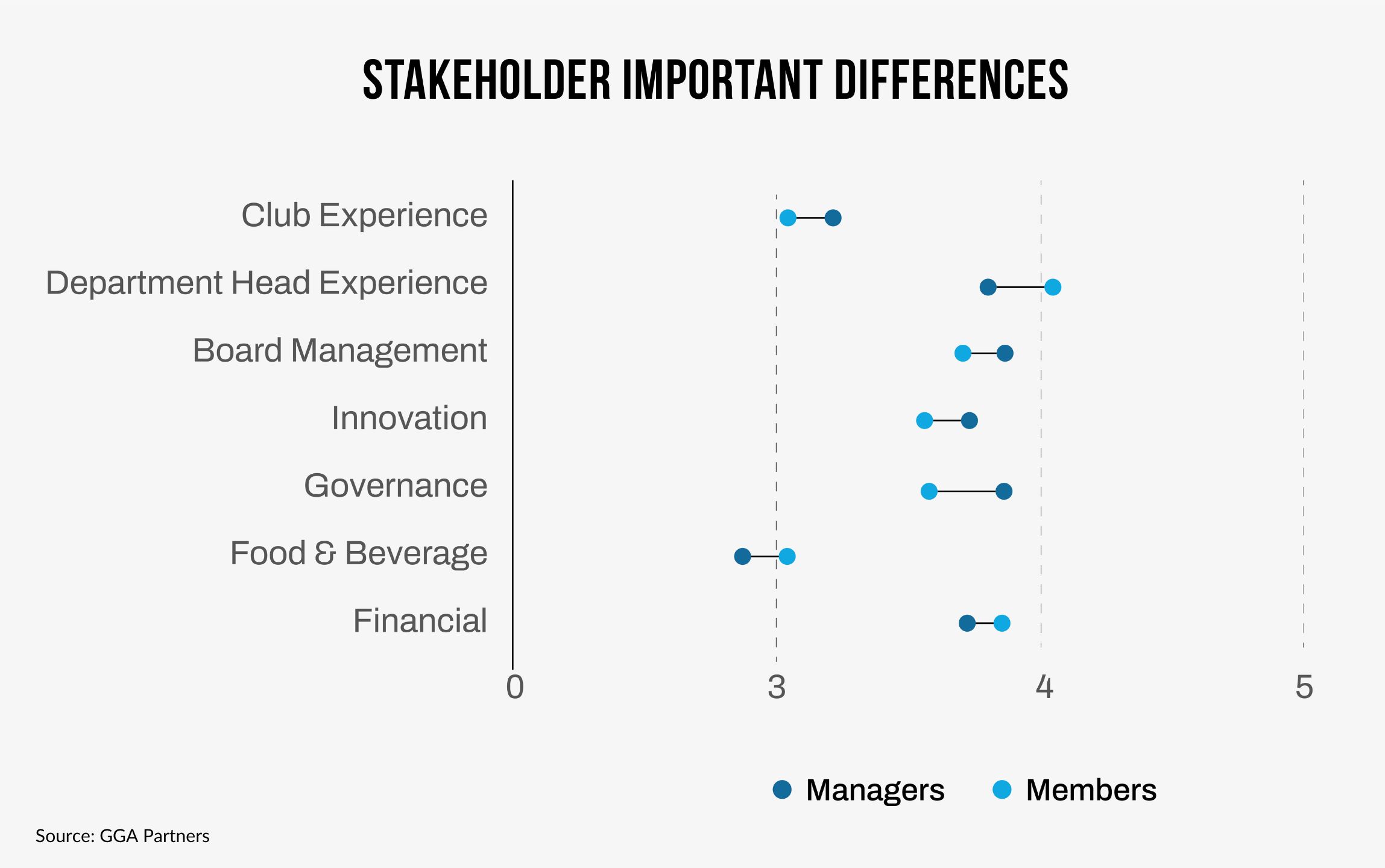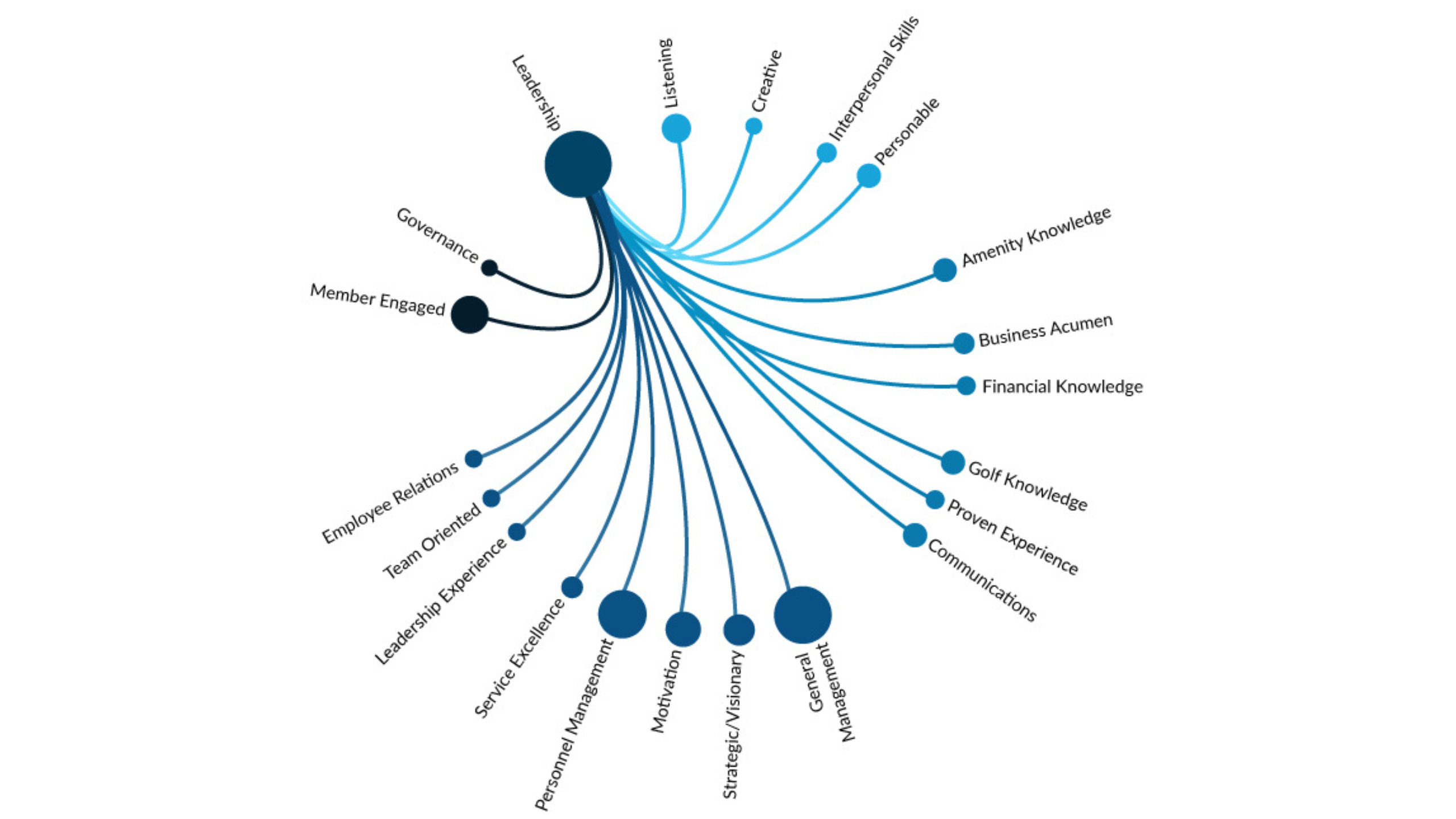Research Brief: Stakeholder Expectations of Club Leaders’ Skills
- August 30, 2023
- Dr. Eric Brey, Insight, Featured, Executive Search

Today, finding the right club leader is less about finding someone with experience – it’s more about using data to find the right professional to match the skills needed for a club’s unique demands.
Leadership expectations of club managers only continue to grow. Leaders require the operational knowledge that corporate executives demonstrate. Members have increasingly higher expectations of the experience their club delivers. Employees have more options than ever and desire a leader who understands they are an integral part of the club. But what precisely do members and members of management want in their next GM/COO/CEO? How do these expectations change based on what each group perceives as essential?
The club industry has done an excellent job of creating opportunities for professional development focused on creating well-prepared industry leaders. For example, the Club Management Association of America (CMAA) has integrated 11 competency areas around conceptual, administrative, and technical skills into their Business Management Institute (BMI) curriculum. The Club Management Association of Canada’s (CMAC) mission – to create great leaders through excellence in club management – also focuses on supporting their members by providing professional development in critical operational areas.
But when it comes to clubs finding their next great leader or a current professional looking for the next great club, identifying the specific skills and abilities needed to succeed isn’t always straightforward. Expectations are provided and often repeated across job descriptions, focusing on:
- Position overview and the expectations of the position;
- Attributes, competencies, and qualification expectations; and
- A summary of the club’s initiatives and where the club is going
However, the specificity of crucial stakeholder expectations needs to be clarified. Often members and employees have very different needs, and these insights are critical to understanding who will be successful as a leader.
Using our research-based approach, where data about the club’s needs are front and center in the search process, deeper insights into expectations can be established. Using a multi-step method, we emphasize understanding the similarities and differences between stakeholders and how these influence finding the right candidate. Information is collected from both groups, employees and members of the club, to identify the skills and capabilities needed from potential candidates, assess potential hires' fit, and place a candidate with the best opportunity to succeed. Our research has found that stakeholders' expectations at a club are focused on four areas: technical knowledge, management skills, professional attributes, and member engagement.

While each area represents critical leadership abilities and experiences, each offers unique value. For instance, technical knowledge and management skills have similarly elevated levels of importance. Whereas technical knowledge is driven by knowledge of various functional business areas, management skills are driven by effective leadership and the ability to be strategic. Professional attributes illustrate that being personable and creative is important, while member engagement focuses on understanding and delivering on the needs specific to the club industry.
Stakeholder Differences
As part of our executive search process to identify each club's unique needs, employee and member stakeholder groups are asked to prioritize the skills they see as most important. Results indicate similarities across expectations along with significant differences between members and staff.

Members emphasize the financial and budgeting skills needed at the GM/COO level, the importance of bringing food and beverage experience to the position, and the ability to provide direction for the departments they supervise. Food and beverage stand out as unique, given that GGA generally sees this as an area of improvement when working with club industry clients. These results indicate that greater emphasis is being placed on a new GM/COO hire to increase member satisfaction in this critically important area as part of having broad department-level experience.
On the other hand, managers emphasized club industry experience, the ability to manage the board, being innovative in finding solutions, and governance experience. Understanding the club industry's uniqueness is critical for this group. From a previous experience standpoint, managers want a leader who knows how to effectively to interact with members and manage this fundamental relationship effectively.
From Differences to Interaction
To provide greater insight into clubs' needs, the interaction between the specific abilities and experience across technical knowledge, management skills, professional attributes, and member engagement areas demonstrates where emphasis can be placed. Through this process, clubs and potential applicants get a genuine sense of what the right candidate looks like. As demonstrated below, it is important to understand that some areas are more important than others when looking for the appropriate skillset. The larger bubbles indicate a more important position attribute, while only those interacting skills and experiences are shown, indicating that not every skill set is interrelated. For instance, from a GM/CEO/COO perspective, the importance of demonstrating leadership experience (the largest bubble) comes down to effectively leading in areas such as listening, team orientation, and successfully handling members. Leadership can also be showcased by having business acumen and financial knowledge. While thinking strategically and being able to motivate are essential considerations, effectively communicating is considered a critically important skill compared to other abilities.

Key Takeaways
While various leadership skills are essential for any position, a research-based process paints a clearer picture of the right candidate skillset needed for each club. By tailoring any search process using these insights, unique needs can be identified to find suitable candidates for clubs and the right opportunities for candidates to help everyone succeed in the long term. From our research, we have found that:
1.While similarities exist between two very influential stakeholder groups, significant differences indicate that care should be taken to ensure that the needs of both groups are considered when hiring a club leader.
2. These differences are shown in how each stakeholder group views one another. Members see supporting other managers as more important, while managers see managing the member relationship as significantly more important.
3. Club’s stakeholders' expectations are focused on four areas, that not all areas are considered equally important, and that significant (and important) interactive relationships exist across categories.
Though potential club managers are typically evaluated on a list of abilities, leaders are judged by their success in exceeding member expectations. Technical abilities are important to deliver these exceptional experiences, but personality is also critical to a leader’s success. By using a data-driven approach, the unique needs of each club can be identified to understand and match the personality attributes and management experiences needed to lead successfully. Ultimately, there is no standard formula for finding the right leader, but by using data, a club can find future leaders with the best chance to succeed.
Interested in learning about GGA’s Executive Search services?
If you would like to learn more about how we can help your club find its next club leader, please michael.gregory@ggapartners.com



